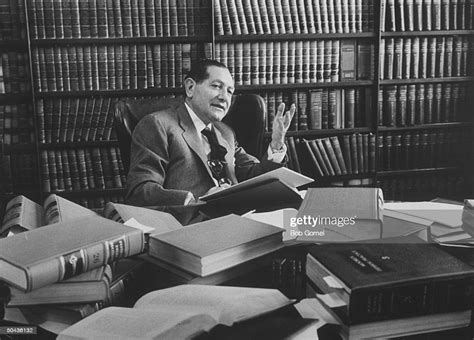A Quote by Louis Nizer
True religion is the life we lead, not the creed we profess.
Related Quotes
As we were baptized, so we profess our belief. As we profess our belief, so also we offer praise. As then baptism has been given us by the Savior, in the name of the Father and of the Son and of the Holy Ghost, so, in accordance with our baptism, we make the confession of the creed, and our doxology in accordance with our creed.
No religion is absolutely perfect. Yet not only do we fight for religion, but also are we often willing to sacrifice our lives for it. And what we hopelessly fail to do is to live it. A true religion is that which has no caste, no creed, no colour. It is but an all-uniting and all-pervading embrace.
And so it is true in this sense that there is essentially but one religion, the religion of the living God. For to live in the conscious realisation of the fact that God lives in us, is indeed the life of our life, and that in ourselves we have no independent life, and hence no power, is the one great fact of all true religion, even as it is the one great fact of human life. Religion, therefore, at its purest, and life at its truest, are essentially and necessarily one and the same.
While I am opposed to all orthodox creeds, I have a creed myself; and my creed is this. Happiness is the only good. The time to be happy is now. The place to be happy is here. The way to be happy is to make others so. This creed is somewhat short, but it is long enough for this life, strong enough for this world. If there is another world, when we get there we can make another creed.
I never told my own religion nor scrutinized that of another. I never attempted to make a convert, nor wished to change another's creed. I am satisfied that yours must be an excellent religion to have produced a life of such exemplary virtue and correctness. For it is in our lives, and not from our words, that our religion must be judged.
RELIGION is one's opinion and belief in some ethical truth. To be a Christian is to have the religion of Christ, and so to be a believer of Mohammed is to be a Mohammedan but there are so many religions that every man seems to be a religion unto himself. No two persons think alike, even if they outwardly profess the same faith, so we have as many religions in Christianity as we have believers.
The incipient magician will confess his faith to a universal religion. He will find out that every religion has good points as well as bad ones. He will therefore keep the best of it for himself and ignore the weak points, which does not necessarily mean that he must profess a religion, but he shall express awe to each for of worship, for each religion has its proper principle of God, whether the point in question be Christianity, Buddhism, Islam or any other kind of religion.
We have no reason to be discouraged and cast down if the religion we profess is not popular and few agree with us. We must remember the words of our Lord Jesus Christ in this passage: ‘The gate is narrow’. Repentance, and faith in Christ, and holiness of life, have never been fashionable. The true flock of Christ has always been small. It must not move us to find that we are reckoned singular, and peculiar, and bigoted, and narrow minded. This is the ‘narrow way’. Surely it is better to enter into eternal life with a few, than to go to ‘destruction’ with a great company



































